The Delaware River Joint Toll Bridge Commission (DRJTBC) today announced it will shift to temporary cashless toll collections 10 p.m. Tuesday, March 24, in response to the worsening coronavirus/COVID-19 pandemic.
Until further notice, tolls at the Commission’s seven cash/E-ZPass tolling points will be assessed electronically via E-ZPass or through toll notices sent to registered vehicle owners via U.S. Mail. (Note: Latest available statistics show more than 75 percent of transactions at Commission toll bridges are now collected through E-ZPass.)
The new emergency toll-collection process will eliminate exchanges of currency and change that could spread coronavirus among customers and Commission personnel.
New Tolling Process for Previous Cash Customers
There are no changes for E-ZPass customers; they are urged to proceed through lanes marked for E-ZPass as they do now.
Motorists who previously paid cash at Commission toll plazas will be directed to a single lane (far right) at each tolling point. While these lanes will have overhead signs reading “cash,” the respective toll booth will be closed with an accompanying placard stating “Cashless tolling in effect. Keep moving.” Motorists should move through these lanes at 5 MPH without stopping.
In the absence of toll-both attendants, overhead equipment will record the passage of any vehicle without a functioning E-ZPass transponder. A bill for the transaction — for the toll charge only — will be prepared and mailed to the vehicle’s registered owner at a future date. (Since this is a new process, specific details about the wording of billing notices and issuance dates are still being worked out.)
Payment
As currently planned, a non-E-ZPass-equipped vehicle’s owner would have 30 days from a toll-notice’s issuance date to provide payment to the Commission’s toll-processing service provider – the regional New Jersey E-ZPass Customer Service Center. Payment can be made by credit card or check. More information will be on the notice.
Penalties for Missing Payment Deadline
Failure to make payment by the prescribed due date will cause the toll bill to be placed in violation. A $30 violation fee will be applied to each toll transaction that goes unpaid and ascends to violation status.
Applicable Toll Bridges
The new toll-assessment process applies to the following seven toll bridges:
- Trenton-Morrisville (Route 1)
- New Hope-Lambertville (Route 202)
- I-78
- Easton-Phillipsburg (Route 22)
- Portland-Columbia (Routes 611, 46 & 94)
- Delaware Water Gap (I-80)
- Milford-Montague (Route 206)
(The Commission’s Scudder Falls [I-295] Toll Bridge is an all-electric toll facility and is not affected by this new temporary emergency process.)
E-ZPass – Safer, More Convenient Way to Go
Motorists who must travel during the current coronavirus crisis are encouraged to get E-ZPass if they don’t already utilize the electronic toll-paying service. Advantages include enhanced safety, convenience, and possible time and cost savings.
As previously noted, the entity that processes DRJTBC toll transactions is the regional NJ E-ZPass Customer Service Center, which serves seven toll agencies located or domiciled in New Jersey, Pennsylvania and Delaware. Accounts may be established with this E-ZPass service provider by going to www.ezpassnj.com or I-888-AUTO-TOLL (1-888-288-6865). This regional toll processor – which is not a New Jersey state government agency – has served the DRJTBC for more than five years.
E-ZPass use has numerous benefits:
- Mitigates handling of potential germ-tainted cash.
- Reduces paperwork and hassle by consolidating toll charges to periodic bills instead of multiple toll transaction notices.
- Increasing open-road tolling facilities allow tolls to be assessed at prevailing highway speeds – including the Commission’s Scudder Falls (I-295), Delaware Water Gap (I-80), and I-78 toll bridges.
- Helps reduce congestion and delays at toll-collection points.
- Frequent-commuter discount – The DRJTBC provides a 40-percent commuter discount to Class 1/passenger vehicle motorists who use a Commission-affiliated E-ZPass to pay for 16 or more toll-direction trips across one or more Commission toll bridges in a respective calendar month.
